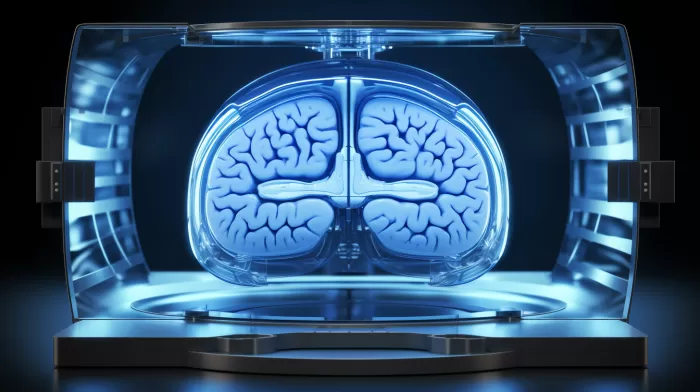Mark Twain’s famous words, “Age is an issue of mind over matter. If you don’t mind, it doesn’t matter,” ring even truer now as research uncovers the significance of the brain’s role in aging. Scientists have found that the brain physically changes in unique ways as we grow older, despite society’s constant efforts to conceal aging.
A study published in Current Biology reveals an insightful discovery: a “developmental clock” within the brain. This biological signature represents the maturation of the brain and can capture age differences remarkably well. Timothy Brown from the University of California, San Diego School of Medicine says it can account for the various individual differences that exist across people of different ages.
Using magnetic resonance imaging (MRI) technology, the research team scanned the brains of 885 participants aged between 3 and 20 years old. Through this process, they identified 231 biomarkers of brain anatomy that can be employed to assess a person’s age with over 92% accuracy. To put this into perspective, this is within a year or two of their actual age.
“The fact that we found a collection of brain measures that so accurately captures a person’s chronological age means that brain development, or at least certain anatomical aspects of it, is more firmly controlled than we knew previously,” shares Brown. The consistency in this maturity metric among typically developing children suggests it could also be sensitive to detecting abnormalities.
So, what does this mean for you? And how can you ensure your brain remains vital and healthy as you age? We’ve compiled some proven methods backed by scientific research for maintaining optimal brain health and potentially delaying the physical changes that come with aging.
- Exercise regularly
Physical activity benefits both the body and the brain. Research shows that engaging in regular exercise can improve cognitive function and slow down the aging process in the brain. Experts recommend at least 150 minutes of moderate-intensity aerobic exercise or 75 minutes of vigorous-intensity aerobic activity per week, combined with muscle-strengthening activities on two or more days.
- Maintain a healthy diet
A well-balanced diet full of essential nutrients, vitamins, and minerals is crucial for proper brain function. Studies suggest that consuming a Mediterranean-style diet, rich in fruits, vegetables, whole grains, nuts, and healthy fats, can protect the brain from age-related decline.
- Get enough sleep
Quality sleep is vital for overall brain health. During sleep, the brain clears out toxins and consolidates memories. Sleep deprivation can lead to impaired cognitive function, increased risk of dementia, and other brain-related issues. Aim for seven to nine hours of sleep per night to keep your brain in top shape.
- Engage in cognitive activities
Challenging your brain with cognitive activities, such as puzzles, memory games, and learning new things, can improve its plasticity and maintain cognitive function over time. Researchers have found that participating in mentally stimulating activities can help delay cognitive decline.
- Manage stress
Chronic stress can negatively impact brain health and accelerate the aging process. Engaging in relaxation techniques such as mindfulness meditation, yoga, or deep breathing exercises can help alleviate stress and promote overall well-being.
- Stay social
Having strong social connections is essential for maintaining cognitive function as we age. Research shows that increased social engagement can enhance cognitive reserve and protect the brain from decline.
- Take care of your cardiovascular health
There’s a strong connection between heart health and brain health. Maintaining your cardiovascular health through exercise, a balanced diet, and controlling your blood pressure, cholesterol levels, and blood sugar can help keep your brain in prime condition.
- Consult with your doctor
As with any health matters, it’s essential to consult your doctor to discuss any concerns and create a plan tailored to your specific needs. A healthy brain is key to aging gracefully, so don’t take its well-being for granted.
In conclusion, it’s clear that the brain plays a pivotal role in the aging process. By adopting a healthy lifestyle that incorporates regular physical activity, a balanced diet, proper sleep, mental stimulation, stress management, social engagement, cardiovascular health, and regular consultation with your doctor, you can help ensure your brain remains vital and healthy as you age, potentially delaying the physical changes that come with time.



